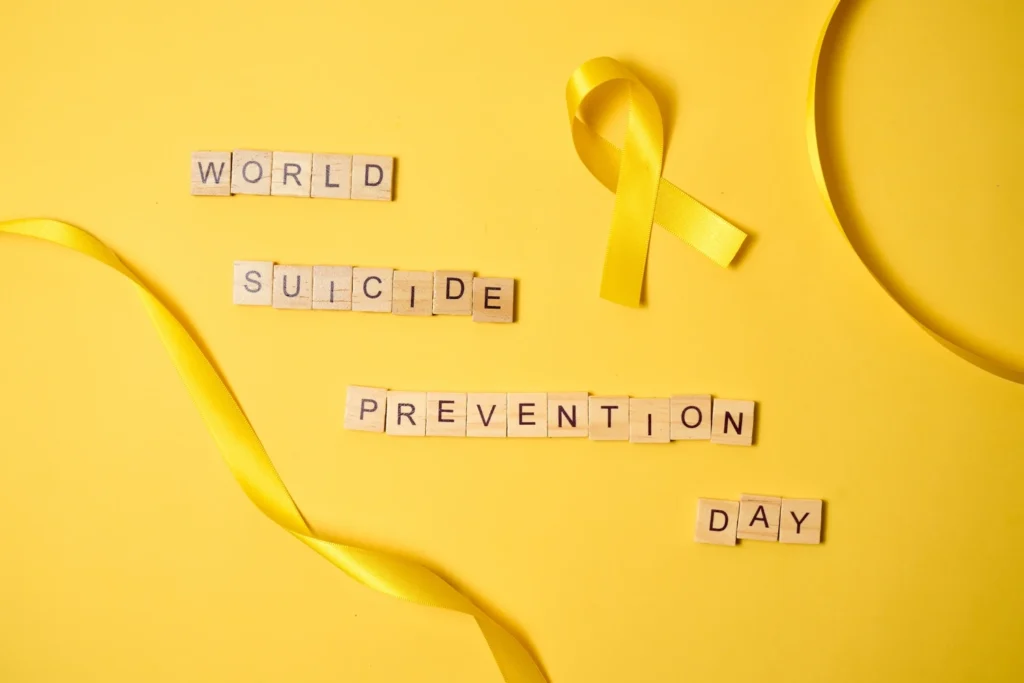
Available in Audio Format:
Sep 09, 2025
Promoting Life and Hope on World Suicide Prevention Day
Every year, September 10 is recognized as World Suicide Prevention Day. For years, Canada has promoted suicide prevention, including providing the necessary care for those who are suffering. World Suicide Prevention Day is another opportunity to do so.
The President of the International Association for Suicide Prevention, which organizes World Suicide Prevention Day, recently noted that “suicide prevention is a shared commitment that unites us across borders, cultures, and communities. As we continue our journey to change the narrative on suicide, let us ensure our message of hope and understanding reaches everyone – in every corner of the world.”
On September 10, Canadians affirm that message of hope, recognizing that suicide prevention must be a priority and that those with mental illness need support and care.
On September 10, Canadians affirm that message of hope, recognizing that suicide prevention must be a priority and that those with mental illness need support and care.
But this fall, Canadian Parliamentarians will again be considering assisting rather than preventing suicide: should Canada be expanding medical assistance in dying (MAiD) to those with mental illness as their only underlying condition?
In 2021, the Canadian Senate added a clause to new euthanasia legislation stating that those with mental illness would become eligible as of March 17, 2023. The federal government has twice delayed that expansion until March 17, 2027.
Notably, the federal government stated that Canada was not ‘ready’ to expand MAiD to those with mental illness. But the concerns raised about the expansion remain very real fears today. Canada is no more ready today than it was in 2023 or in 2024. In fact, Canada will never be ready for such an expansion.
Member of Parliament Tamara Jansen has introduced a bill to repeal the expansion of MAiD to those with mental illness, recognizing that delaying the expansion is not good enough. Bill C-218 would affirm suicide prevention and the need for better care for those who are struggling with poor mental health. As MP Jansen stated when introducing the bill, “imagine that someone’s son or daughter has been battling depression for some time after losing their job or maybe due to a broken relationship. Imagine they feel a loss so deep they are convinced the world would be better off without them … Our society could end a person’s life for solely a mental health challenge.”
“Our society could end a person’s life for solely a mental health challenge.” – MP Tamara Jansen
MP Andrew Lawton endorsed Bill C-218, emphasizing the importance of hope in the midst of mental illness. Lawton notes that “If the law on the books were there 15 years ago, I’d probably be dead right now.” Offering MAiD for mental illness ignores the possibility that a person with mental illness may recover, or the reality that with adequate care a person can live well despite mental illness.
Perhaps in part because of the emphasis on suicide prevention and mental well-being, a 2023 poll found that a full 82% of Canadians said medical assistance in dying (MAiD) should not be expanded without first improving mental health care access. Fifty percent opposed such an expansion entirely, with only 28% supporting it. Additionally, the poll found that 40% of Canadians who needed mental health treatment faced barriers to receiving that treatment.
People who want to end their own lives and those asking a physician to end their lives are both suicidal. Evidence from the few international jurisdictions that allow assisted suicide for mental illness shows that it overlaps with traditionally suicidal individuals. For example, in the Netherlands, at least 65% of those granted euthanasia for psychiatric conditions are women, a rate that mirrors the ratio of female-male suicide attempts.
Offering MAiD for mental illness flies in the face of suicide prevention efforts and ignores the possibility that recovery may be possible.
Offering MAiD for mental illness flies in the face of suicide prevention efforts and ignores the possibility that recovery may be possible. Canada must promote suicide prevention for all Canadians, not least for those struggling with mental illness.
This year on World Suicide Prevention Day, Canadians should encourage Parliamentarians of all political stripes to not just talk about the importance of suicide prevention, but to vote for a bill that will protect those with mental illness and encourage hope rather than despair.


